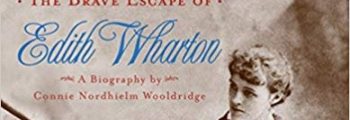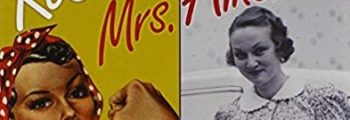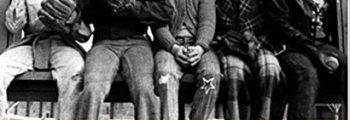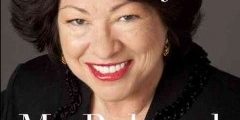Women’s History Month
It’s Women’s History Month, our opportunity to reflect on the events and people that led us to the passage of the 19th amendment as well as acknowledge the strides towards greater equality we’ve taken in the last one-hundred years.
Below is a timeline of major figures and events towards women’s suffrage as well as milestones in the equality of women. Far from an exhaustive list, each of these entries ties directly to a book with more information about the topic that you can check out at the Simi Valley Public Library.
July 19, 1848 The first women’s rights convention takes place in Seneca Falls, New York. Elizabeth Stanton writes the Declaration of Sentiments that lays out a path to women’s rights for years to come, signed by many of the attendees of the convention. Seneca Falls and the Origins of the Women’s Rights Movement by Sally G. McMillen is an adult non-fiction book about the significance of this convention on Women’s rights as a whole.
May 29, 1851 Sojourner Truth, famous for both her work to abolish slavery as well as her work for women’s rights delivers the speech “Ain’t I a Woman” at a convention in Akron, Ohio. The speech responds to the preconcieved notions by the attendees of what women are and what they can do. Who Was Sojourner Truth is a children’s biography about the life of Sojourner Truth and her work towards equality.
May 15, 1869 Susan B. Anthony and Elizabeth Stanton create the National Woman Suffrage Association focused on gaining women the right to vote in the United States. Around the same time the American Woman Suffrage Association is also established that focuses on changing state constitutions for the same purpose, though the groups don’t merge to worth together until much later. Not For Ourselves Alone is a documentary about Anthony and Stanton’s work establishing the NSWA and eventual success in the creation of the 19th amendment.
May 10, 1872 Victoria Woodhull is chosen as the candidate of the Equal Rights Party, running with Frederick Douglass on the platform of suffrage and equal rights. Victoria Woodhull: Fearless Feminist is a children’s biography about the life of Victoria Woodhull and her fight for equal rights for women as well as African Americans.
December 1, 1903 Marie Curie is the first woman to win a Nobel Prize; she won the Nobel Prize in Physics alongside Antoine Henri Becquerel and Pierre Curie. She did also win a Nobel Prize in Chemistry shortly after in 1911, making Curie also the first person to win two Nobel Prizes. Marie Curie and Her Daughters is a biography giving insight into the life of Marie Curie and her family, and how she managed to make such huge strides in multiple sciences.
August 26, 1920 The 19th Amendment of the United States Constitution is officially adopted, stating that “the right of citizens of the United States to vote shall not be denied or abridged by the United States or by any State on account of sex.” Suffragette: The Battle for Equality is a children’s nonfiction book outlining the path to this historic event, culminating in women achieving the right to vote.
April 15, 1921 Edith Wharton is the first woman to win a Pulitzer for her 1920 novel The Age of Innocence; she was later nominated for a Nobel Prize in Literature in 1927, 1928, and 1930. The Brave Escape of Edith Wharton is a biography about the writing career of Edith Wharton, her awards, and her influence.
June 17, 1928 Flight excited the world, and expanded widely from the most basic flight to the possibility of going across the entire globe by flying through the air. Amelia Earhart captured the interest of the U.S by flying across the continent and then ultimately disembarking on a transatlantic flight in 1928. I’m Unstoppable is a children’s board book that allows parents to introduce young children to the great feats of Amelia Earhart
May 4, 1931 The first woman to be awarded the Nobel Peace Prize, Jane Addams founded the Hull House in Chicago focused on promoting education and autonomy for women. She also co-founded the ACLU, and is viewed as the founder of social work in the United States. Citizen is a biography of Jane Addams showing how she went from a childhood of wealth to seeking greater purpose and influence, and trying to make a difference in the lives of women across the United States.
September 1, 1939 During World War 2 Rosie the Riveter became an icon across America. As many citizens went off to war, women by a mixture of opportunity and necessity took over many of the jobs domestically, doing things that previously would have been either entirely inaccessible or frowned upon. Rosie the Riveter became an icon of women in the work force, working in factories, doing their part for the war effort, and normalized the idea of women in these roles. Rosie and Mrs. America is a nonfiction book talking about the two very disparate views of women during this time period.
December 1, 1955 Rosa Parks was always trying to make a difference, part of the NAACP (and the only woman that was part of her local chapter at the time), and part of the League of Women Voters. Her most iconic moment, however, was when in the face of adversity. She was told that she had to give up her seat because of the color of her skin, because she wasn’t considered equal, and she refused. Rosa is a children’s biography outlining Rosa Parks’ influence and her fight for civil rights for all.
February 8, 1964 During the debate about the passage of the Civil Rights Act in 1964, it was suggested that “sex” should also be added as one of the criteria protected. This came as some surprise as the suggestion was by a fairly strong opponent of civil rights legislation in general, but his reasoning at the time was primarily for the protection of white feminists. It did ultimately pass with his suggestion added.
June 23, 1972 Breaking down the walls of discrimination for women was a slow process. By the 1970’s women were allowed to vote, and changes had been put in place to begin the prohibition of discrimation on the basis of sex, but the American education system still did especially for certain activities. With the passage of Title IX, kids couldn’t be denied from participation in an education program on the basis of sex.
September 25, 1981 Appointed by Ronald Reagan in 1981, Sandra Day O’Connor was the woman to serve on the Supreme Court of the United States, commonly referred to as ‘The Highest Court in the Land’ and one of the most powerful and influential roles in the United States. The Majesty of the Law is an autobiography by Sandra Day O’Connor reflecting on her experiences as a justice.
June 18, 1983 Sally Ride, from Los Angeles, California, became the first American woman in space, and the third woman overall after Valentina Tereshkova and Svetlana Savitskaya. Also the youngest American astronaut, she eventually retired to become a professor of physics at the University of California, San Diego.
August 10, 1993 Affectionately nicknamed The Notorious R.B.G, Ruth Bader Ginsburg was the second woman to be a justice of the Supreme Court. She is an outspoken advocate for gender equality and the rights of women. She has been the subject of multiple films, such as On the Basis of Sex and RBG.
August 8, 2009 Born in The Bronx to Puerto Rican parents, Sonia Sotomayor is a Justice of the Supreme Court that has shown passion and advocacy for the rights of all different races, genders, and ethnicities. She is the first Hispanic and Latina Justice of the Supreme Court. My Beloved World is an autobiography of Sotomayor’s path to becoming a judge and her focus on equality.
January 21, 2017 Even after great strides towards the rights of women throughout history, there is still much to be done to ensure equality on the basis of sex in the United States and across the world. The Women’s March was a worldwide call to action seeking better legislation for women’s rights, and had millions of participants both in the United States and across the globe. Together We Rise celebrates the Women’s March with a collection of personal stories and essays about the event.
Seneca Falls Convention

Sojourner Truth Delivers “Ain’t I a Woman?” Speech

The National Woman Suffrage Association is Established

Victoria Woodhull is the First Woman to be a Presidential Candidate

Marie Curie is the First Woman to Win a Nobel Prize

Nineteenth Amendment

Edith Wharton

Amelia Earhart’s Flight Across the Atlantic

Jane Addams Awarded the Nobel Peace Prize

World War II and Rosie the Riveter

Rosa Parks Won’t Be Moved

Civil Rights Act

Title IX

Sandra Day O’Connor Appointed

Sally Ride’s Trip to Space

Ruth Bader Ginsburg Appointed

Sonia Sotomayor Appointed

The Women’s March

Search the Library Catalog:
Search Online Resources:
What We Have
Materials |
Online Resources |
Services For |
